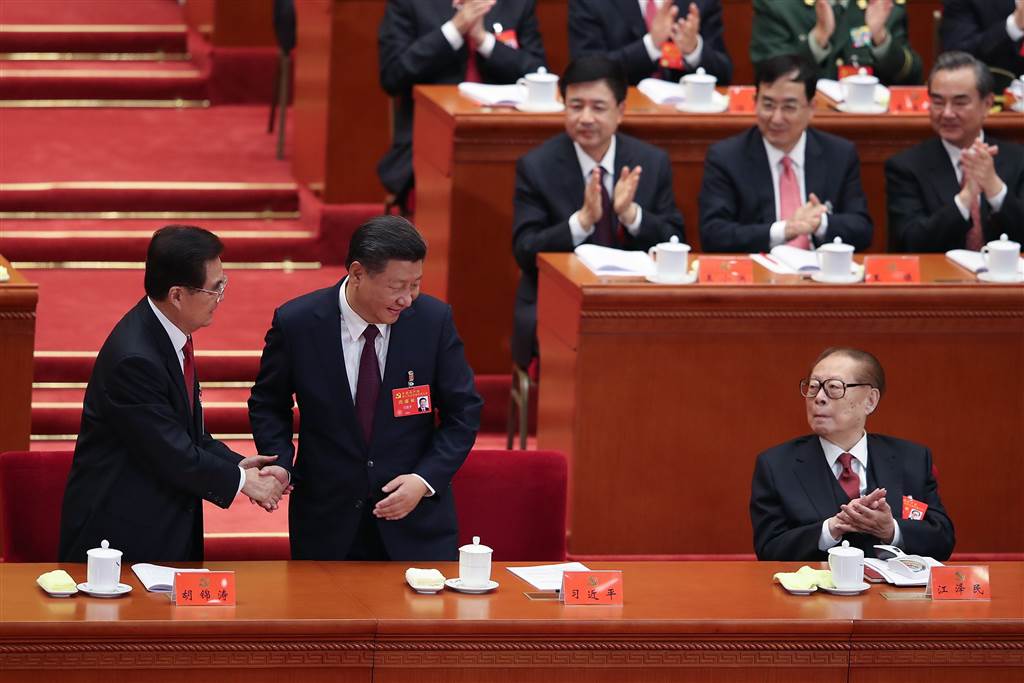
(TibetanReview.net, Oct21, 2017) – Beneath a veneer of unity and appearance of rallying under a common leadership, China seems to be bristling with dissent and opposition within its ranks, resulting in cataclysmic fall from grace of those getting caught on the wrong foot. In only the latest of such instance, a person once seen as a leader-in-waiting was abruptly removed from office this summer and on Oct 19 publicly accused of being a part of a cabal that tried to seize control of the communist party and state power.
And the head of China’s securities watchdog has applauded President Xi Jinping for “saving the Communist Party” by foiling a coup plot by Sun Zhengcai, the former party boss of megacity Chongqing, who was once a front runner for a place in the Politburo Standing Committee.
The accusation against a number of disgraced cadres of plotting in recent years to seize the reins of power was made by Liu Shiyu, chairman of the China Securities Regulatory Commission, while addressing a panel on the sidelines of the party’s national congress in Beijing on Oct 19, reported the scmp.com Oct 19.
Bringing up a string of names of top leaders who had been purged, tried and jailed in recent years, Liu has said, “[Xi] addressed the cases of Bo Xilai, Zhou Yongkang, Ling Jihua, Xu Caihou, Guo Boxiong and Sun Zhengcai. They had high positions and great power in the party, but they were hugely corrupt and plotted to usurp the party’s leadership and seize state power.”
The report also said Wang Qishan, the country’s top graft-buster and the man widely seen as the country’s second most powerful man, had told China’s top political advisory body late last year that some cadres had tried to take over the party. “More seriously, some even sought to … seize party and state power, engaging in activities to split the party, and seriously threatening the nation’s political stability,” the party mouthpiece People’s Daily was reported to have quoted Wang as saying.
That report had come out on Dec 1 although the speech was dated Oct 31. The report cited Wang as having also said the central authorities had managed to punish Zhou, Bo, Guo, Xu and Ling so as to eradicate a number of conspirators and ambitious schemers within the party.
Zhou, a former member of the Politburo Standing Committee, is the highest ranking official to have been convicted of corruption in the party’s history. Bo, Guo, Xu and Ling were all former or serving top-level party leaders. Xu died in 2015.
Earlier, Hu Chunhua, the man once seen as being tipped to take over China’s reins as a leader alongside disgraced Chongqing chief Sun Zhengcai, had thrown his weight behind the decision to expel the former high-flyer. Chairing a meeting of senior cadres, the Guangdong provincial party boss had passed on details of the investigation and dismissal of Sun, urging Communist Party members to learn a lesson from the case, reported scmp.com Oct 1, citing official media reports.
He was reported to have called for loyalty to Xi and the party’s central leadership “everywhere, at all times, and in all matters” and to “firmly support the party’s decision to probe Sun Zhengcai.”
Hu Chunhua, a protégé of former President Hu Jintao, was once seen as a likely successor to Xi. However, though a Politburo member, his prospects are now seen as waning, including by possibly not getting a seat on the Politburo Standing Committee. Even Xi’s own replacement for Sun, Chen Min’er, is unlikely to make it to that standing committee, not being a member even of the larger 25-member Politburo.
Chen said Oct 19 that the decision to remove Sun was “completely right, very wise and timely”, reported nytimes.com Oct 20.
Xi is widely seen as intending to continue to lead the party, and therefore the country, beyond the unwritten two five-year terms and make that clear by not following the established practice of designating an obvious or apparent successor at the ongoing party congress.


